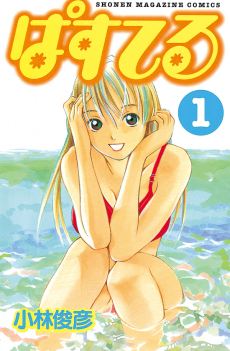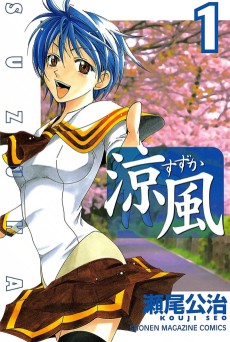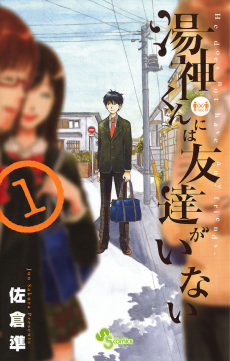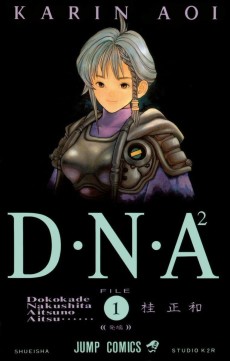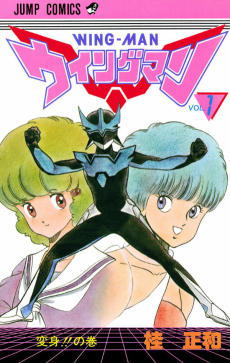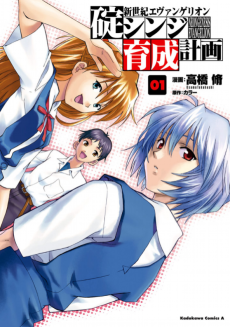I''S
STATUS
COMPLETE
VOLUMES
15
RELEASE
July 4, 2000
CHAPTERS
143
DESCRIPTION
Shy Ichitaka has a crush on his high-school classmate Iori, but ever since she posed for semi-provocative swimsuit photos in a magazine, she's had a lot of sleazy guys hitting on her. Ichitaka's afraid to make his feelings known for fear Iori will think he's just another creep.
(Source: Viz Media)
CAST
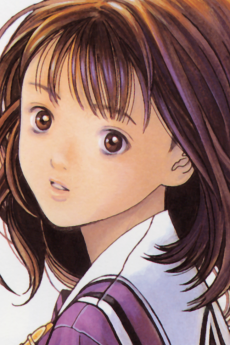
Iori Yoshizuki
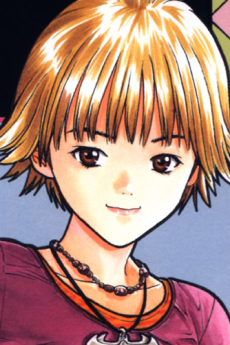
Itsuki Akiba
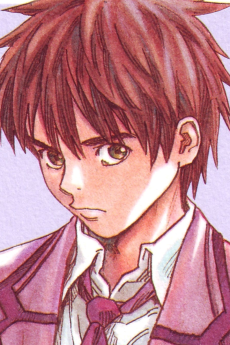
Ichitaka Seto
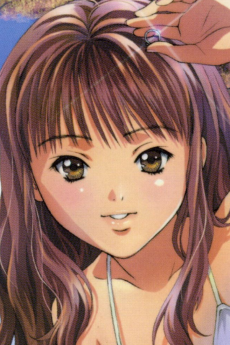
Izumi Isozaki
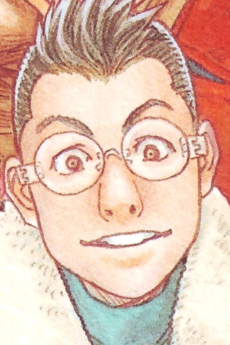
Yasumasa Teratani
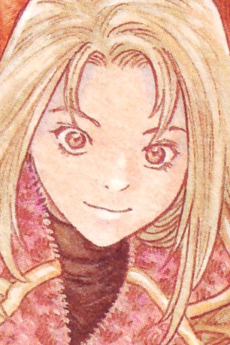
Nami Tachiba
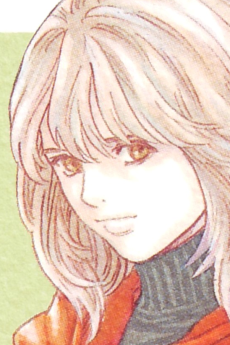
Jun Koshinae
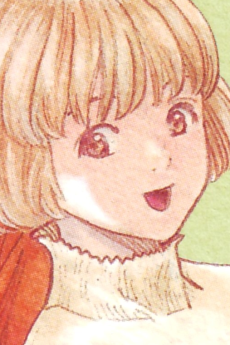
Yuuka Morisaki

Marionette King

Aiko Asou
CHAPTERS
RELATED TO I''S
 SPECIAL ComedyI''s Pure Bonus
SPECIAL ComedyI''s Pure BonusREVIEWS

GeekyTechnician
43/100Dont bother unless you haven't read a bunch of romance mangasContinue on AniListAs an avid romance manga lover I couldn't believe there was a "gem" out there I hadn't found out about (there's a bunch I haven't read yet, but I do know of their existence). I saw this in a review youtube video I won't mention just in case, and decided to give a shot after hearing many good things and reading the same in that video's comments. Following that, I gotta say I was a bit disappointed. The writing was meh most of the time, with characters needing to lie, hide stuff, or jump to conclusions in order to drive the plot, which is an automatic "lazy writing" characteristic in my book.
I can see how if this is one of your first romance mangas you can get hooked, cause it has that good "keeping you engaged" situations, with fun "accidents" and interesting side characters. But as for plot, it's just another typical dumb, clueless protagonist archetype (I might be being a bit too harsh, he's not stupid, it's just hard to explain, his decision making based on assumptions is horrible) falling for every scheme and dumb conclusions he can think of, this guy literally can't be more impatient. Instead of solving situations in a logical sense (even for a 15-17 year old) he keeps assuming and assuming and acting based solely on his assumptions. There's only so much as a reader that you can take. It's absolutely ridiculous.
It is basically held together by love triangle situation after love triangle situation. A lot of times actually making you think the protagonist should really just go for the other girl; beause he's definitely too insecure to be with the female lead. And the female lead on the other end, does basically everything thinking of him, which is dumb, even sacrificing her career at the end, when you know she's only unhappy because of how it's hurting her relationship with him. She would actually be fine otherwise with a little grinding on her part. Instead, she keeps getting cheated on, and conveniently never finding out, and trusting this dumbwit blindly and thinking her happiness will be with him. Honestly, it would've been better to have them actually get together a year sooner, instead of just at the end of high school, because that way they could've develop a better system, which would've make the ending with her sacrificing everything for him a bit more believable. But the way they went about it, you know in real life they would've just broken up, and then spend a few months grieving and that was that, they're still super young, people get over stuff at that age in short periods (a year or 2 at most).
If you're an avid romance manga reader, you'll find it meh, okay at best, lots of the secondary characters were way better than the protagonist, and his proper growth doesn't really keep up with the situation, he's always behind in the character development department and that gets annoying. The artstyle is fantastic though!

NapoJ
30/100El encanto del romance de la juventud como impulso para continuar (reseña en ESP y ENG)Continue on AniListLa siguiente reseña está en Español e Inglés (traducida con el apoyo de DeepL)
La versión leída es la traducción al español por Otak
Ichitaka Seto tiene un irremediable error como personaje para el contexto que le es presentado, su absoluta carencia de evolución. Es costumbre que en el harem romántico el protagonista empiece con pocas características redimibles más allá de amabilidad o atención, destellos de genialidad, y en su caso también cuenta con ello, la diferencia es que en su extenso camino al final, sigue sólo con las mismas cualidades.
Una y otra vez se enfrenta a dilemas, bastante similares entre sí, en los que se equivoca, creemos que aprende para que nuevamente se equivoque en lo mismo en el próximo problema. El aparente trazado de una evolución se resume en únicamente un momento del cuál dependía la obra para seguir existiendo. Y es una lástima porque si hay algo de interés a nivel narrativo es lo empático que puede resultar en ciertas escenas para su público objetivo.
Porque Seto no exhuma esa confianza o seguridad como otros protagonistas del género, tiene dudas acerca de sus deseos, cómo afectarán a las otras personas y de qué manera quiere asumirlos, los cuáles son expresados de forma transparente y efectiva en el monólogo interno y plasmados visualmente por Masakazu, sea por medio de diferentes recursos como el collage de recuerdos o encerrarlo en el panel, es ahí cuándo Ichitaka es la mejor versión de sí mismo. Pero ese abordaje no es extendido a través de cambios en sus actitudes, sólo deriva en promesas esperando a ser rotas.

También tiene otra marcada carencia, no tener cualquier otra dimensión que no se involucre con sus relaciones, es decir, carece de pasatiempos, intereses o sueños, este último se referencia en la narrativa desde cierto punto así que puede tratarse de una omisión intencional, sin embargo, la ausencia de los otros dos es sólo una enorme contra para conseguir interés o empatía por él. Un protagonista hueco que sólo existe para su relación y ni aún así consigue llevarla bien.
Otra razón para ese vacío en el que habita son los personajes secundarios y cómo han sido tratados, porque al contrario de su protagonista, tienen más personalidad que es expresada en intereses y las relaciones entre ellos. Aún con poco tiempo en la narrativa, a varios se les puede demarcar una cierta evolución, sin embargo, dado que la trama está tan enfrascada en el drama romántico, la mayoría de sus interacciones con Ichitaka será el consejo u observación, con excepción de su mejor amigo Teratani y el elenco femenino principal.
Porque como se ha mencionado, es un harem de comedia romántica aunque caracterizarlo de “harem” es algo exagerado, en vez podría considerarse como un triángulo romántico repetido diferentes veces durante el transcurso de la narrativa. Un planteamiento narrativo que, al darle espacio a la historia, debería permitir que se desarrollará apropiadamente, sino fuera que la caracterización de los personajes femeninos está por debajo del mismo Teratani.

Katsura utiliza los personajes a su conveniencia, no como si fuera pues, personajes. Introducir y omitir para agregarle interés a la historia principal sin tener consideración por los seres que ha creado, y nuevamente, es una lástima porque contrario a Seto, si tienen algunas características más allá de su dimensión afectiva como los intereses artístico y perspectivas futuro, los cuáles son bordeados, no profundizados, no se les brinda mayor atención que para los propósitos del malentendido o el gag. Y quien se lleva la peor parte es la heroína principal, Iori.
Iori es dos personajes diferentes entre antes y después del hecho principal de la historia, y aun aceptando su repentino cambio de personalidad aduciendo a la importancia de ese suceso, tenemos un final que contradice sus esfuerzos y actitudes hasta ese momento, sólo para ser complacientes con el Seto que nunca se ha dedicado a cambiar ni comprender a los demás. Su acto de heroísmo sigue siendo el mismo del comienzo, un inintencional espejo que refleja lo poco que ha importado los ocurridos sucesos.
Me ha gustado el dibujo de Katsura, de hecho mi interés por la obra llegó a partir de sus portadas en la que me atrajo ver un estilo más cercano a lo realista, algo que no es frecuente. Y ese talento se ha trasladado a sus páginas porque aún si hay un pobre contenido, la presentación lo mejora en varias maneras. Tiene un gran sentido del posicionamiento del personaje respecto al entorno que suele detallar con dedicación, un buen ritmo en el cómo se presentan los sucesos y un diseño de personajes que aún si no es excepcional si resulta agradable verlos “aterrizados a la realidad” hasta cierto punto.

Si hay un factor de evidente contraste es el abordaje de su fanservice porque por si sólo puedo admirar y gustar del talento de Katsura como dibujante más no su habilidad de escritor, la obra abusa de la “imaginación pervertida” durante paneles y paneles, al punto de que termina cansando por ser un recurso barato de utilizar, y cuando no lo usa se vale de las situaciones más inverosímiles y absurdas en búsqueda de entretener en algo al lector, notable en su aumento conforme la serie avanzaba, demostrando la necesidad en retener en algo a su público.
Por lo tanto sólo puedo quedarme con su talento al lápiz, implicando que me hubiera sido de mayor disfrute y valor ver alguna colección de ilustraciones en vez de leer su historia. Podrá tener cualidades específicas en momentos particulares, más el despropósito del resto ha evitado que le tenga buen recuerdo o lo recomiende por interés genuino o histórico.
English
Ichitaka Seto has an irremediable flaw as a character for the context that him is presented , his absolute lack of evolution. It's common that in the romantic harem the protagonist begins with few redeemable characteristics beyond kindness or attention, flashes of genius, and in his case he also has that, the difference is that in his extensive path to the end, he continues with only the same qualities.
Again and again he faces dilemmas, quite similar to each other, in which he makes mistakes, we believe he learns so that again he makes the same mistake in the next problem. The apparent outline of an evolution is summarized in only one moment on which the work depended to continue to exist. And it's a pity because if there is anything of interest at the narrative level is how empathetic it can be in certain scenes for its target audience.
Because Seto doesn't exhume that confidence or security as other protagonists of the genre, he has doubts about his desires, how they will affect other people and in what way he wants to assume them, which are expressed in a transparent and effective way in the internal monologue and visually captured by Masakazu, either through different resources such as the collage of memories or enclosing him in the panel, that's when Ichitaka is the best version of himself. But this approach is not extended through changes in his attitudes, it only derives in promises waiting to be broken.

He also has another marked lack, not having any other dimension that is not involved with his relationships, that is, he lacks hobbies, interests or dreams, the latter is referenced in the narrative from a certain point so it may be an intentional omission, however, the absence of the other two is just a huge counter to get interest or empathy for him. A hollow protagonist who only exists for his relationship and even then doesn't manage to get along.
Another reason for this emptiness is the secondary characters and how they have been treated, because unlike the main character, they have more personality that is expressed in their interests and the relationships between them. Even with little time in the narrative, several of them can be demarcated a certain evolution, however, since the plot is so engrossed in romantic drama, most of their interactions with Ichitaka will be advice or observation, with the exception of his best friend Teratani and the main female cast.
For as mentioned, it's a romantic comedy harem although characterizing it as a “harem” is a bit of an exaggeration, instead it could be considered a romantic triangle repeated different times during the course of the narrative. A narrative approach that, by giving the story space, should allow it to develop properly, were it not that the characterization of the female characters is beneath Teratani himself.

Katsura uses the characters at his convenience, not as if they were, well, characters. Introducing and omitting to add interest to the main story without consideration for the beings he has created, and again, it's a pity because contrary to Seto, they do have some characteristics beyond their affective dimension such as artistic interests and future perspectives, which are skirted, not deepened, not given more attention than for the purposes of misunderstanding or gag. And the one who gets the worst of it is the main heroine, Iori.
Iori is two different characters between before and after the main event of the story, and even accepting her sudden personality change on the grounds of the importance of that event, we have an ending that contradicts her efforts and attitudes up to that point, only to be pandering to the Seto who has never dedicated himself to changing or understanding others. His act of heroism remains the same as at the beginning, an unintentional mirror reflecting how little the events have mattered.
I liked Katsura's drawing, in fact my interest in the work came from its covers in which I was attracted to see a style closer to realism, something that's not frequent. And that talent has carried over to his pages because even if there is poor content, the presentation enhances it in several ways. He has a great sense of character positioning with respect to the environment that he usually details with dedication, a good rhythm in the way events are presented and a character design that even if it is not exceptional, it is nice to see them “grounded in reality” to a certain extent.

If there is a factor of evident contrast is the fanservice approach because I can only admire and like Katsura's talent as a drawer but not his ability as a writer, the work abuses the “perverted imagination” during panels and panels, to the point that it ends up tiring for being a cheap resource to use, and when it's not used, it uses the most unlikely and absurd situations in search of entertaining the reader in something, notable in its increase as the series progresses, demonstrating the need to retain something to its audience.
Therefore I can only keep his pencil talent, implying that it would have been of greater enjoyment and value to me to see a collection of his illustrations rather than read his story. He may have specific qualities at particular times, but the inanity of the rest has prevented me from remembering him well or recommending him for genuine or historical interest.
SIMILAR MANGAS YOU MAY LIKE
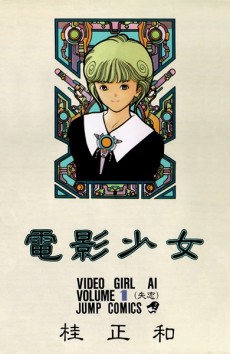 MANGA DramaDenei Shoujo
MANGA DramaDenei Shoujo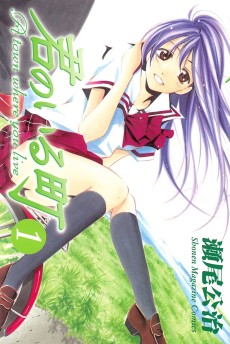 MANGA DramaKimi no Iru Machi
MANGA DramaKimi no Iru Machi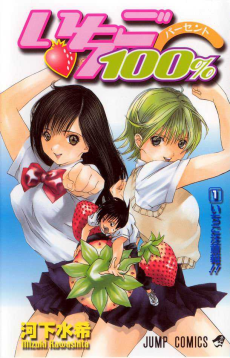 MANGA ComedyIchigo 100%
MANGA ComedyIchigo 100%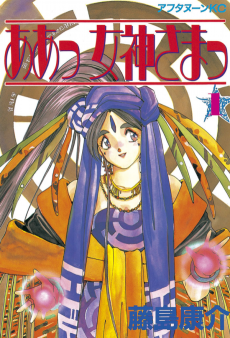 MANGA ComedyAa! Megami-sama!
MANGA ComedyAa! Megami-sama!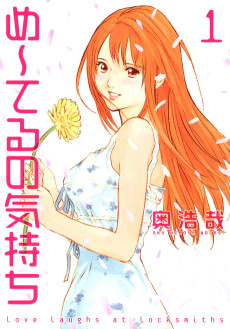 MANGA DramaMe-Teru no Kimochi
MANGA DramaMe-Teru no Kimochi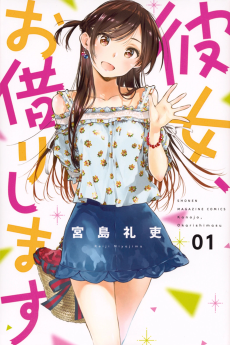 MANGA ComedyKanojo, Okarishimasu
MANGA ComedyKanojo, Okarishimasu
SCORE
- (3.6/5)
MORE INFO
Ended inJuly 4, 2000
Favorited by 207 Users




